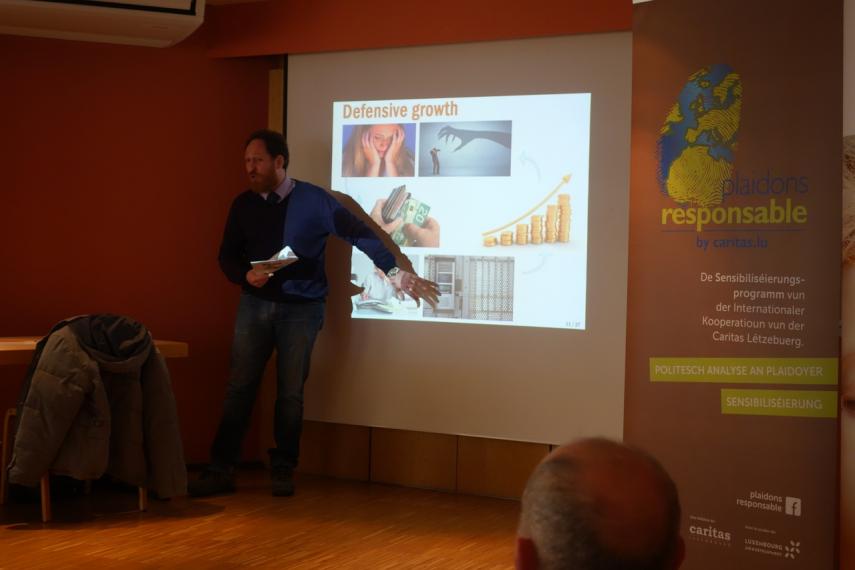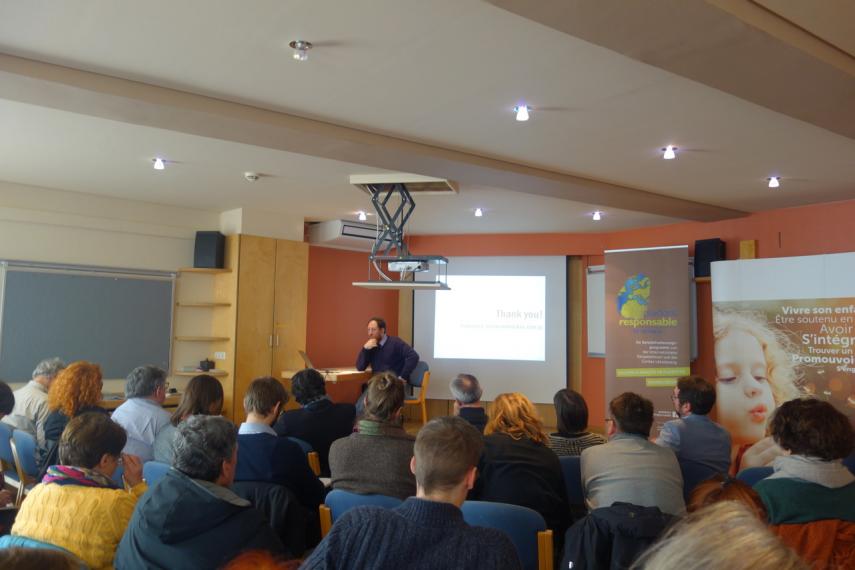Relationships and trust, levers for more sustainable growth!
Friday 17 January 2020
Yesterday took place in the premises of Caritas Luxembourg the lunch debate "Growth and Degrowth: Rethink the role of our economy in creating social welfare" organised by the team "Plaidons Responsable" of Caritas Luxembourg and moderated by Francesco Sarracino, researcher at STATEC. The lunch debate brought together nearly fifty people. Francesco Sarracino is particularly involved in issues related to the social economy and the measurement of social welfare.
From the beginning, he sets the framework. We must not believe that degrowth is an alternative to growth. For degrowth to be a sustainable solution, we must have a strong motivation to reduce our lifestyle. This motivation is only strong when there are exceptional disasters in the world. As soon as the urgency of the disaster decreases, our motivation follows. According to Francesco Sarracino, the alternative to growth is the development of our relationships.
To demonstrate his theory, Francesco Sarracino presents two examples, that of China and that of the United States. While economic growth in China has exploded over the last 25 years, the satisfaction that the Chinese have with their lives has clearly declined, and this is true across all social categories. In the United States, too, spectacular economic growth has had no effect on people's satisfaction with their lives. Francesco Sarracino explains that one reason why growth does not bring the expected well-being is that it is defensive, i.e. it is due to the accumulation of assets in response to a lack of trust and an increasing absence of relationships. In the United States, for example, 25% of people report having no one to confide in. This rate rises to 50% if family members are excluded. Furthermore, statistics show that isolation is growing everywhere as economic development proceeds.
This defensive growth that we have today is not only negative for the resources of our planet, but it does not bring us any well-being. In order to reduce our footprint on the planet, it is therefore important to reverse this trend and to focus on taking into account people's relational needs and well-being in all sectors of society, from urban planning to the media, transportation, education, health care, etc. The growth then will no doubt be less spectacular than what we have today, but it will certainly be more sustainable.
Donate
Your donation is essential to ensure the continuity of Caritas Luxembourg's actions in the service of the poor.
Other donation methods

